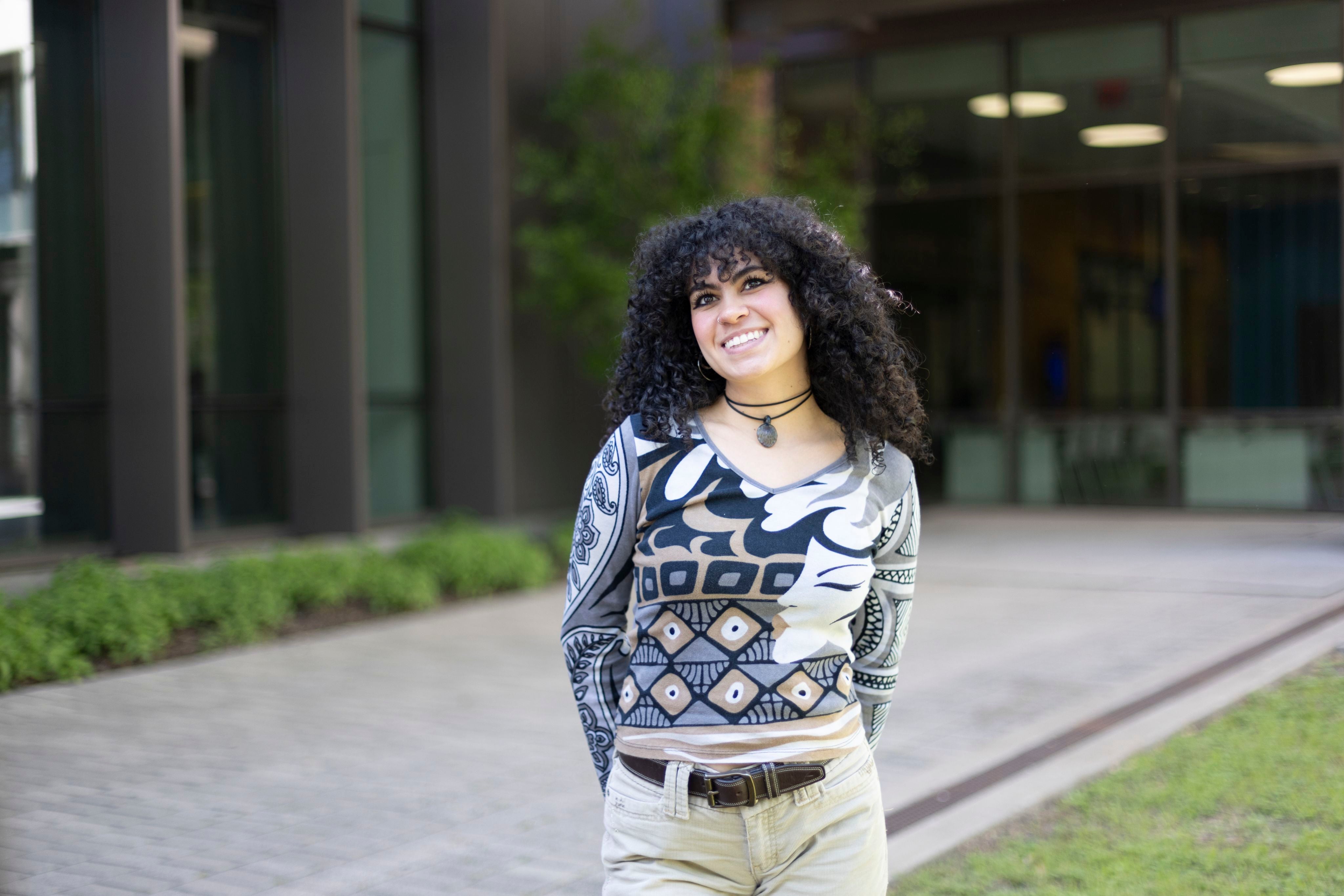Building today's creator economy
Building today's creator economy
Moody College prepares students for careers as influencers, talent agents, marketing executives and more
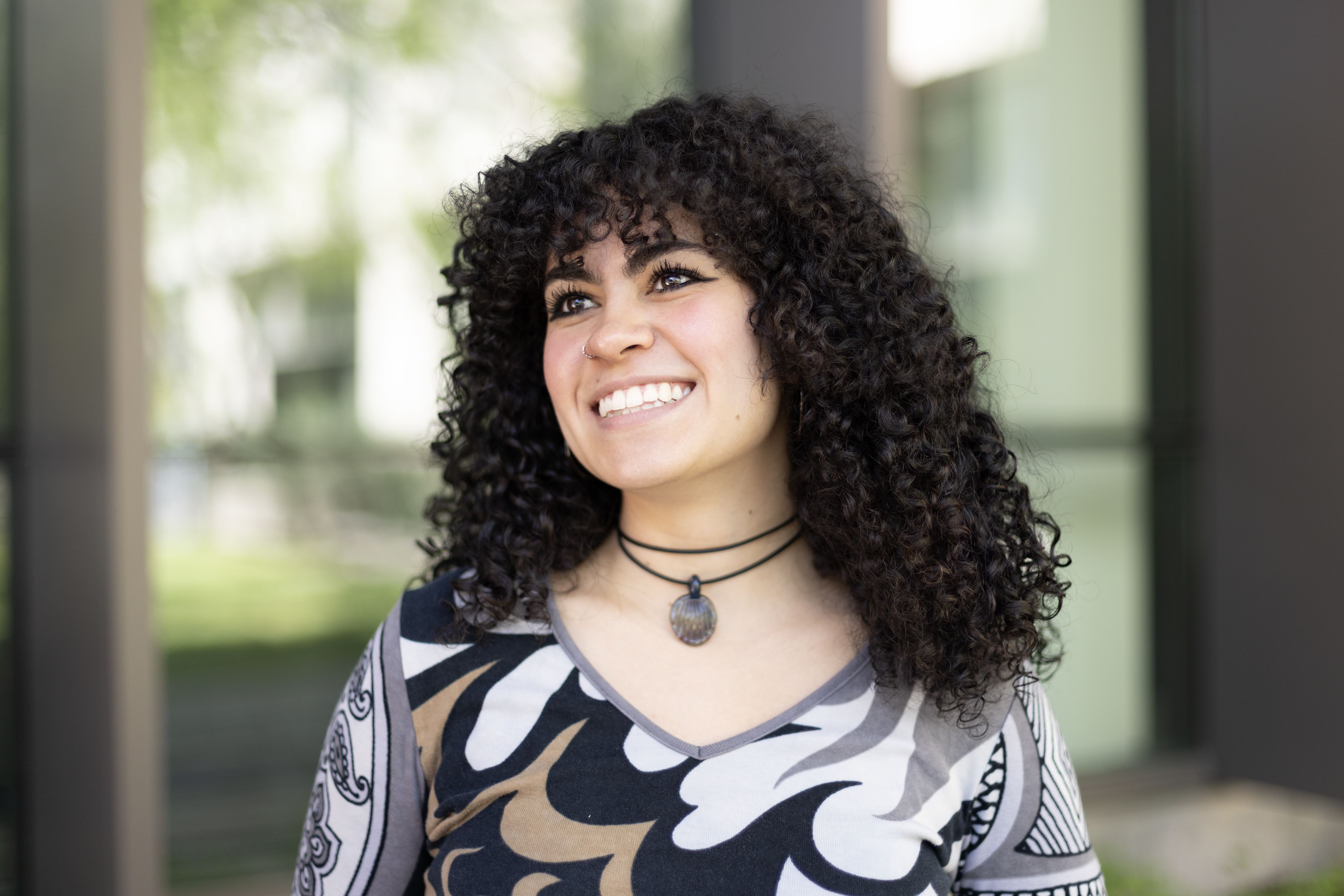
Jasmine Anne is better known on the internet as “Jazzy Anne.” She graduated last year from Moody College of Communication with a radio-television-film degree. But long before that, she built a YouTube following of more than 1.5 million people by posting quirky, creative videos of herself, doing skits and day-in-the-lifes, where she isn’t afraid to show the weirder parts of herself.
Jazzy started posting on YouTube when she was 11. She joined a collaboration called Seven Super Girls, which aired weekly skits for kids online, before starting her own channel. Today, she has a manager who helps her set up deals with brands to promote their products online.
Nordstrom. Hollister. Netflix. Disney. Honey Nut Cheerios. Kool-Aid. H-E-B.
Most of the time, companies find her. They see her large following and want her to post on her Instagram, TikTok and YouTube channels.
Jazzy taste-testing cereals. Jazzy drinking Kool-Aid by the pool. Jazzy doing fashion hauls at Nordstrom.
“I am always looking for ways to promote products authentically,” she said. “But it's still a commercial, which I think viewers understand.”
Jazzy is one of millions of digital influencers in today’s creator economy, using their social media platforms to promote products by drawing people in with creative content. They reach a segment of buyers who no longer see ads on TV and in magazines.
Jason Newman, a manager and producer at Untitled Entertainment, who joined a Moody College-sponsored South By Southwest panel about the creator economy this month, said the way brands reach audiences has changed dramatically over the years.
“I saw how my daughters were consuming content, and it wasn’t going to movies,” he said. “It was that screen in your hand.”
Newman represents some of the top influencers on social media today, and in 2016, was named “Digital Dealmaker of the Year.” He said when he is searching for people to represent, he looks for work ethic and drive, but first and foremost, it’s about the ability to entertain people. “I am looking for someone who can move the needle,” he said. “It has to be something that catches your eye.”
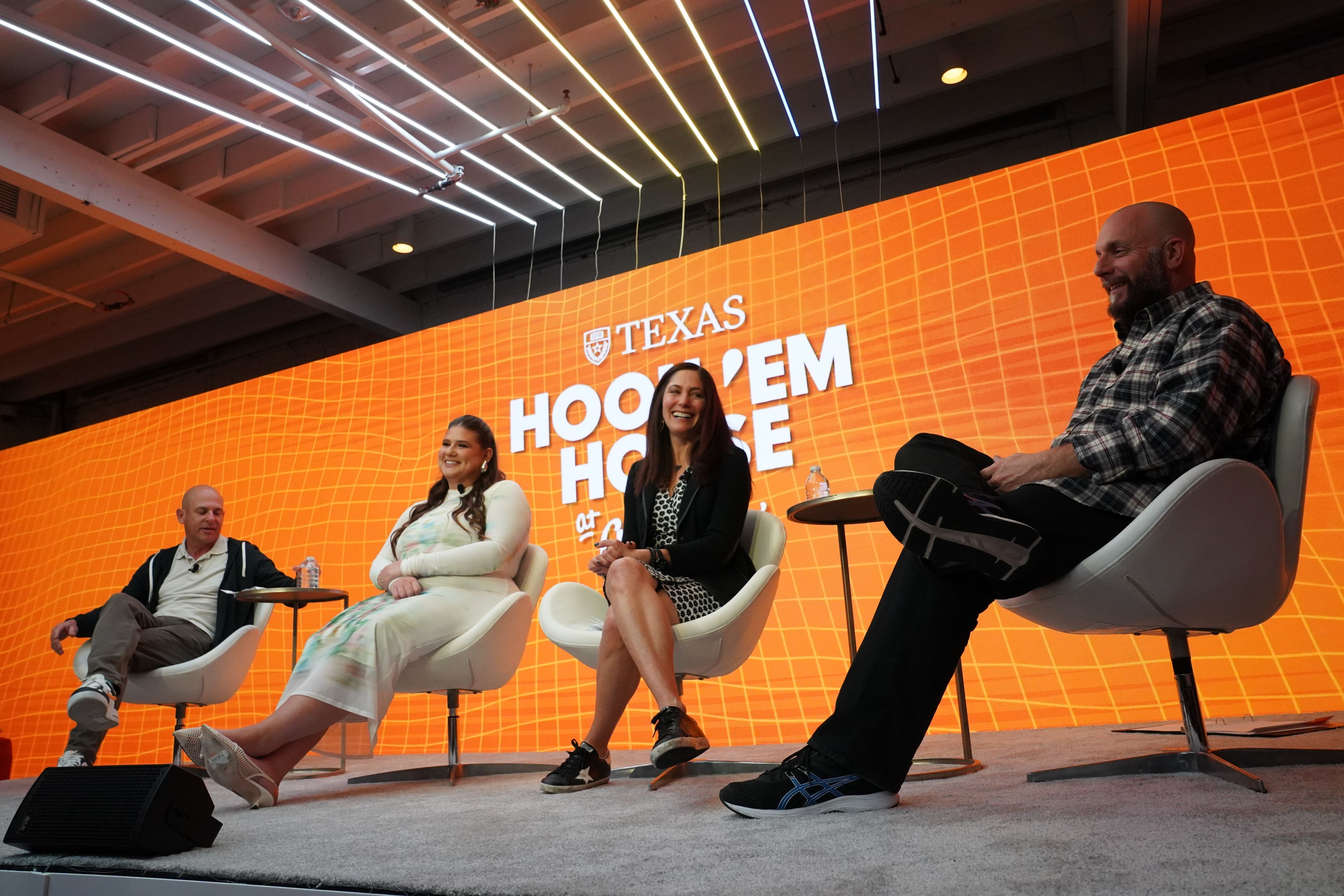
A 2023 report from Morning Consult, a decision intelligence company, found that about 57% of Gen Zers said they would like to become an influencer if given the chance. It also identified media and entertainment as the top industry they want to work in, beating tech, health care and education.
“It is true that many Gen Z students want to be influencers, and that shouldn’t be written off by older generations who weren’t exposed to these careers,” said Natalie Tindall, director of the Stan Richards School of Advertising & Public Relations. “Creators have the opportunity to motivate, shift and empower people into action. The question is how we can harness that as educators to give them the critical thinking, media literacy and writing skills to help them craft compelling and personal narratives that stand out.”
Today, Moody College helps students take on roles as content creators through classes in audience engagement, content marketing, digital social media analytics and brand storytelling that can prepare them for jobs as influencers, whether they want to work in fashion, health, beauty or sports.
While many Moody College graduates will take more traditional routes in media, such as at ad agencies or newspapers, a large percentage will land in new roles in content creation, lending their skills to corporations, brands and businesses that run the gamut.
“Right now, we as educators aren't thinking about entry level careers anymore. With AI, offshoring and other cultural variables reshaping the workplace, our students will have jobs we haven't yet imagined and will have experiences with team members and employers we haven't considered,” Tindall said. “Our task is to give them the mindset of adaptability and flexibility that will help them deal with rapid changes.”
It’s not just influencers who have a stake in the game. The creator economy has made careers for actors, singers, talent agents, marketing executives and more, and there are tons of opportunities in the space.
Megan Bycel, director of creator and public figure partnerships for North America at Meta, who joined Newman at the SXSW panel, helps influencers boost their social followings to draw more people to the platform. The goal is to drive culture, build business and create social impact by providing the tools and best practices to influencers that they need to be successful.
“What makes brands want to work with you is being authentic,” Bycel said. “We’re really looking at the art versus science. How can we look at what is intrinsic to your business and help you with best practices to help you grow your audiences on your platforms.”
"Creators have the opportunity to motivate, shift and empower people into action. The question is how we can harness that as educators to give them the critical thinking, media literacy and writing skills to help them craft compelling and personal narratives that stand out."
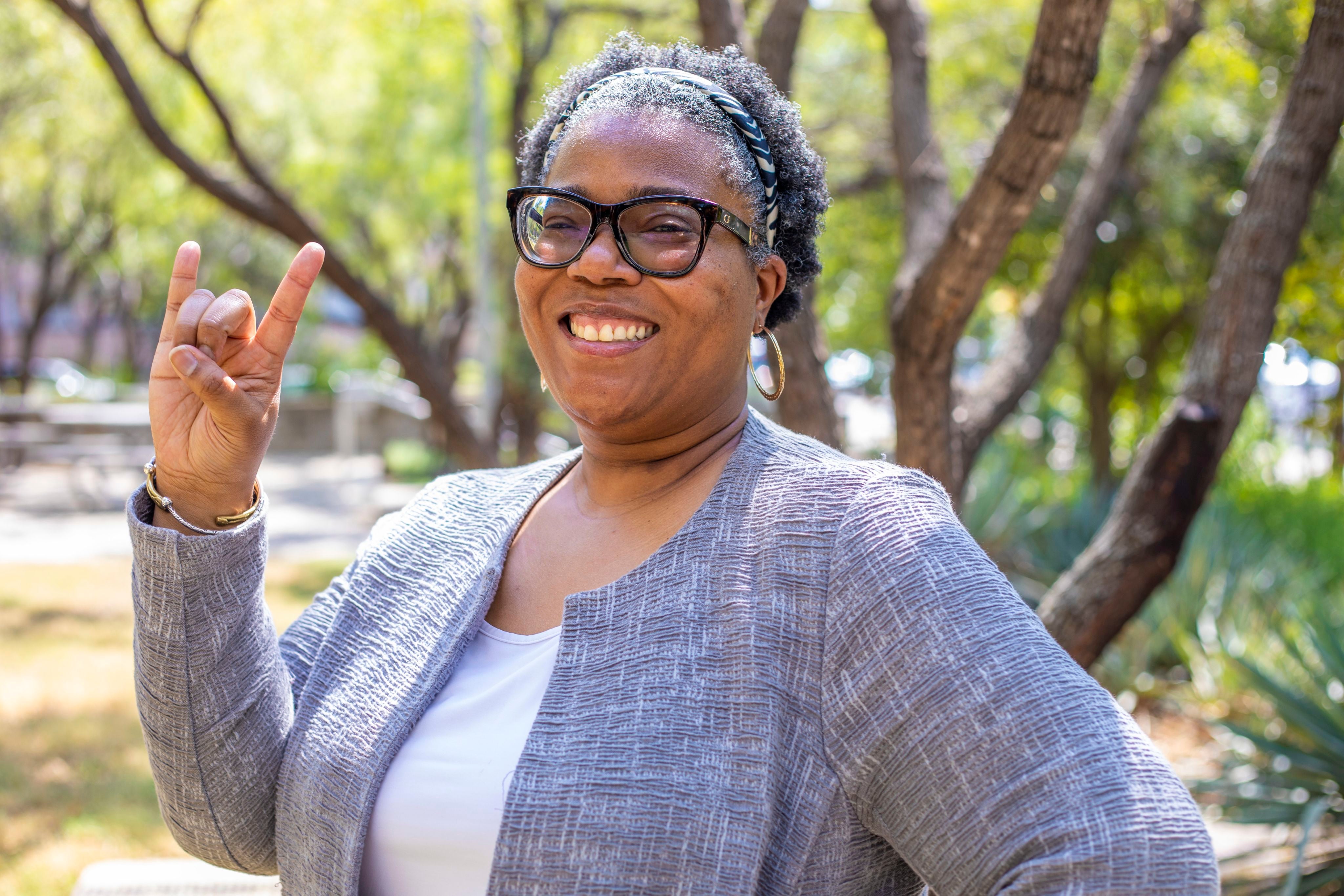
Remi Bader became famous during the pandemic for her “realistic fashion hauls.” Like many influencers today, she shows off clothes on her TikTok and Instagram accounts. But she does it differently. She wants people to see the good, the bad and the ugly and always tries to bring in a little humor.
When she started posting online, she never expected it’d catch on. It was something that occupied her time in quarantine when she was unemployed and had gained weight. She wanted people to see the real her and what it’s like to buy clothes as a bigger woman.
“In the beginning it is true I actually had zero plan. I was truly bored,” she said during the SXSW panel. “I am someone who needs to be busy; there were no jobs in entertainment. It wasn’t until months and months later that I thought, could this be a business?”
Today, Bader has nearly 700,000 Instagram followers, a publicist and endorsement deals, showing off designer fashion but also sticking to her roots with accessible clothing. She said it’s not been without hard work. After she decided to pursue it as a career, she hit up dozens of agents on LinkedIn looking for representation.
“They probably thought I was insane,” she said. “Finally, two of them responded and set up a call. They said they saw some of my videos and believed in me.”
Bader knows she has to constantly evolve to appeal to new audiences while also remaining true to what drew in her loyal following to begin with. She said it’s important, too, to explore opportunities outside social media.
“I am still a content creator, but I have so many interests. I like to model. I want to start a podcast. I want to be a singer,” she said. “I am always thinking about what’s next.”
Bader is honest about how influencers’ careers can be short-lived. Trends change. People lose interest.
“For me, I’m trying to figure that out all the time. Am I over? Am I done? Do people care about me anymore?” Bader said. “There are people who have been doing this for 20 years and still have followers. What can make this a long-term brand?”
For Moody College, the goal is to give future influencers the tools they need to be successful both on and off the internet, including how to create compelling videos and photos, understand data analytics and know what it takes to build a thriving brand.
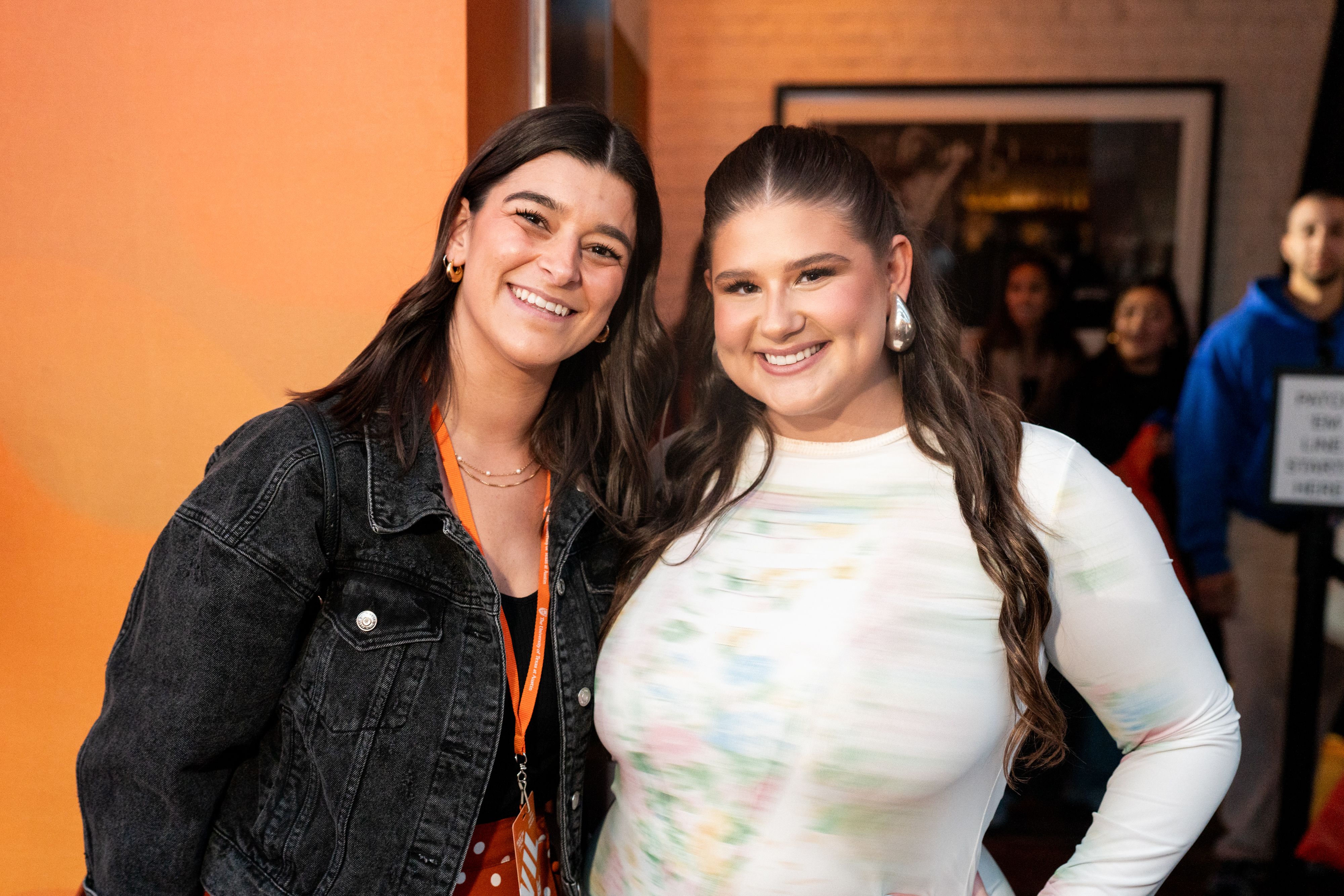
Today, Jazzy is using her RTF degree to work as a freelance videographer and wants to one day make music videos. She doesn’t quite know if she wants to be a full-time influencer, but she thinks she could support herself that way.
“That’s a big question mark in my mind right now. Do I want my primary income to be from influencing?” she said. “I still want to be multifaceted. I still want to write stories and get into the film industry. I try to use my influencing as an in.”
Jazzy said the skills she learned at Moody College have helped her tremendously in her career — building a strong network on campus, getting comfortable sharing things with a group, composing great photos, and particularly, acquiring strong writing skills, which have helped her with scripts and knowing how to keep audiences engaged in a short amount of time.
“I have developed a much greater appreciation for writing,” she said. “I love writing out the details of my scripts. It’s really fun.”
Jazzy agrees with many people today that there is often a negative outlook on the term “influencer.”
“At the end of the day, being an influencer just means you have people following you for a specific reason,” she said. “A lot of my brand is just me being myself, expressing myself in whatever way I want. That can translate to fashion, outfit videos, intrusive thoughts I turn into a skit. Everything I do is very personal to me and who I am as a person.”
Her advice to potential student influencers?
“If you have any interest in doing it, just try it. The hardest part is getting started,” she said. “Some other advice I give is to stay consistent. You can’t measure results in just one month. It can be really disheartening to not see the results. It is important to be making videos you want to watch yourself. Post things that make you laugh. If you want to post outfit stuff, post things you want to see. That keeps it fun as you go along your journey, so it’s not all about the results and the views.”
“At the end of the day, being an influencer just means you have people following you for a specific reason. A lot of my brand is just me being myself, expressing myself in whatever way I want."
